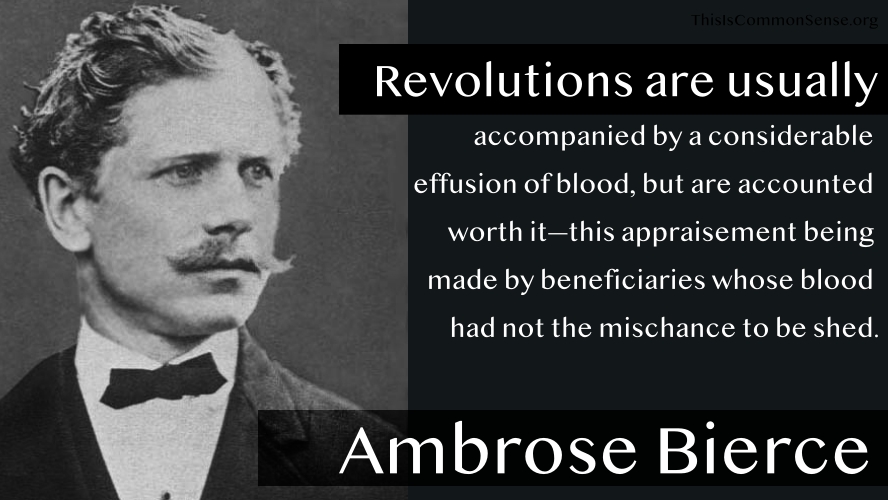Love your Enemies, for they tell you your Faults.
Poor Richard’s Almanack, 1756.
Benjamin Franklin


Love your Enemies, for they tell you your Faults.
Poor Richard’s Almanack, 1756.

Revolutions are usually accompanied by a considerable effusion of blood, but are accounted worth it — this appraisement being made by beneficiaries whose blood had not the mischance to be shed.
From The Devil’s Dictionary (1911).

Let me add, that only a virtuous people are capable of freedom. As nations become corrupt and vicious, they have more need of masters.
Ben Franklin, letter to the Abbés Chalut and Arnaud (April 17, 1787).

Governors will never be awed by the voice of the people, so long as it is a mere voice, without overt-acts.
Joseph Priestley, Essay on the First Principles of Government, 2nd Edition (1771), Section II, “Of Political Liberty.”

Rebellion to tyrants is obedience to God.
Ben Franklin’s recommended motto for the Great Seal of the United States, August 1776.

All hereditary Government is in its nature tyranny. An heritable crown, or an heritable throne, or by what other fanciful name such things may be called, have no other significant explanation than that mankind are heritable property. To inherit a Government, is to inherit the people, as if they were flocks and herds.
Joseph Priestley, The Rights of Man (1791).